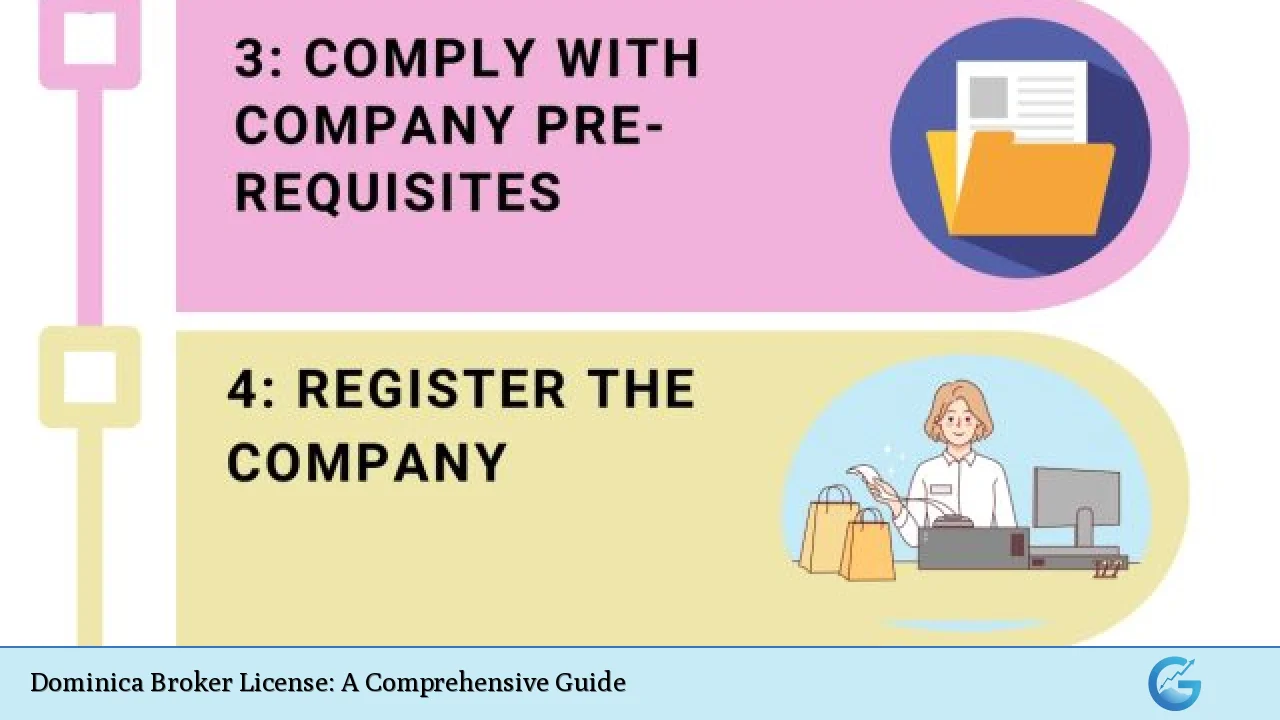The Dominica Broker License has gained significant attention in the financial services industry, particularly among forex, finance, and cryptocurrency enthusiasts seeking offshore opportunities. This comprehensive guide delves into the intricacies of obtaining and maintaining a broker license in Dominica, providing valuable insights for those considering this jurisdiction for their financial operations.
| Aspect | Details | Considerations |
|---|---|---|
| Regulatory Body | Financial Services Unit (FSU) | Main financial regulator in Dominica |
| License Type | No specific forex license | Financial services license may apply |
| Capital Requirement | US$50,000 minimum | Refundable reserve capital |
Understanding the Dominica Broker License
Dominica’s approach to broker licensing is unique and requires careful consideration. Unlike many jurisdictions, Dominica does not offer a specific forex or broker license. Instead, financial services companies, including those involved in forex and cryptocurrency trading, may fall under the broader financial services regulatory framework.
The Financial Services Unit (FSU) of the Commonwealth of Dominica serves as the primary regulatory authority for financial institutions. However, it’s crucial to understand that the regulatory landscape for forex brokers in Dominica is not as clearly defined as in other jurisdictions.
Key Points:
- No specific forex regulatory framework
- Financial services companies may require licensing under the Financial Services Act
- The FSU oversees various financial institutions, including money service businesses
Application Process and Requirements
While there isn’t a dedicated forex broker license, companies looking to operate in Dominica’s financial sector must follow a structured process to obtain the necessary authorizations.
Steps to Obtain Authorization:
- Company Registration
- Preparation of a Detailed Business Plan
- Compliance with Anti-Money Laundering (AML) Regulations
- Capital Deposit
- Application Submission to the FSU
The application process requires meticulous preparation and adherence to Dominica’s financial regulations. Applicants must demonstrate their financial stability, operational competence, and commitment to regulatory compliance.
Technical Requirements:
- Minimum paid-up capital of US$50,000
- Comprehensive AML/CFT policies and procedures
- Detailed financial projections and risk management strategies
User Experience:
Many applicants find the process to be less stringent compared to other offshore jurisdictions, which can be advantageous for startups and small businesses. However, the lack of a specific regulatory framework for forex brokers can lead to uncertainties in operational scope and client protection measures.
Recommendations:
- Engage with local legal counsel familiar with Dominica’s financial regulations
- Develop a robust compliance program that exceeds minimum requirements
- Consider the implications of operating in a less regulated environment for your business model and client base
Advantages and Challenges of the Dominica Broker License
Operating under Dominica’s financial services framework presents both opportunities and potential drawbacks for brokers.
Advantages:
- Lower operational costs compared to more established offshore jurisdictions
- Flexible regulatory environment
- Potential for broader service offerings
Challenges:
- Limited regulatory oversight may affect client trust
- Potential difficulties in establishing banking relationships
- Uncertain future regulatory developments
Technical Considerations:
Brokers must implement their own robust internal controls and risk management systems to compensate for the less prescriptive regulatory environment. This includes advanced trading platforms, secure payment processing systems, and comprehensive client verification procedures.
User Insights:
Some brokers report that the flexible regulatory environment allows for innovation in product offerings and business models. However, others note challenges in gaining credibility with clients and partners due to the jurisdiction’s less established reputation in financial services regulation.
Recommendations:
- Implement industry-leading best practices in operations and client protection
- Stay informed about potential regulatory changes in Dominica and the global financial landscape
- Consider obtaining additional licenses or certifications from recognized international bodies to enhance credibility
Maintaining Compliance and Operational Integrity
Securing authorization is just the first step. Maintaining compliance and operational integrity is crucial for long-term success in Dominica’s financial sector.
Key Compliance Areas:
- Regular financial reporting to the FSU
- Ongoing AML/CFT monitoring and reporting
- Maintaining the required capital reserves
Technical Aspects:
Brokers should invest in robust compliance management systems that can adapt to changing regulatory requirements. This includes automated transaction monitoring, regular staff training programs, and comprehensive audit trails.
Operational Best Practices:
- Implement a strong corporate governance structure
- Conduct regular internal audits
- Engage with local regulatory authorities proactively
Recommendations:
- Develop relationships with local compliance experts and legal advisors
- Participate in industry forums and associations to stay informed about best practices
- Regularly review and update internal policies and procedures
Conclusion
The Dominica Broker License, or more accurately, the authorization to operate financial services in Dominica, offers a unique proposition for brokers seeking an offshore presence. While the flexible regulatory environment can be advantageous, it also requires a heightened sense of responsibility from operators to ensure the integrity of their services and the protection of their clients.
As the global financial landscape continues to evolve, particularly in areas like cryptocurrency and online trading, Dominica’s approach to financial regulation may also change. Brokers considering this jurisdiction must be prepared to adapt to potential regulatory developments and maintain the highest standards of operational excellence.
FAQs
- Is there a specific forex broker license in Dominica?
No, Dominica does not offer a specific forex broker license. Financial services companies may fall under broader financial regulations. - What is the minimum capital requirement for financial services companies in Dominica?
The minimum capital requirement is typically US$50,000, which must be maintained as a refundable reserve. - Who regulates financial services in Dominica?
The Financial Services Unit (FSU) is the primary regulatory authority for financial institutions in Dominica. - Can cryptocurrency businesses operate under Dominica’s financial services framework?
Yes, cryptocurrency businesses may be regulated under Dominica’s financial services laws, but specific regulations are evolving. - How long does it take to obtain financial services authorization in Dominica?
The process can vary, but typically takes several months, depending on the completeness of the application and responsiveness to regulatory inquiries.

